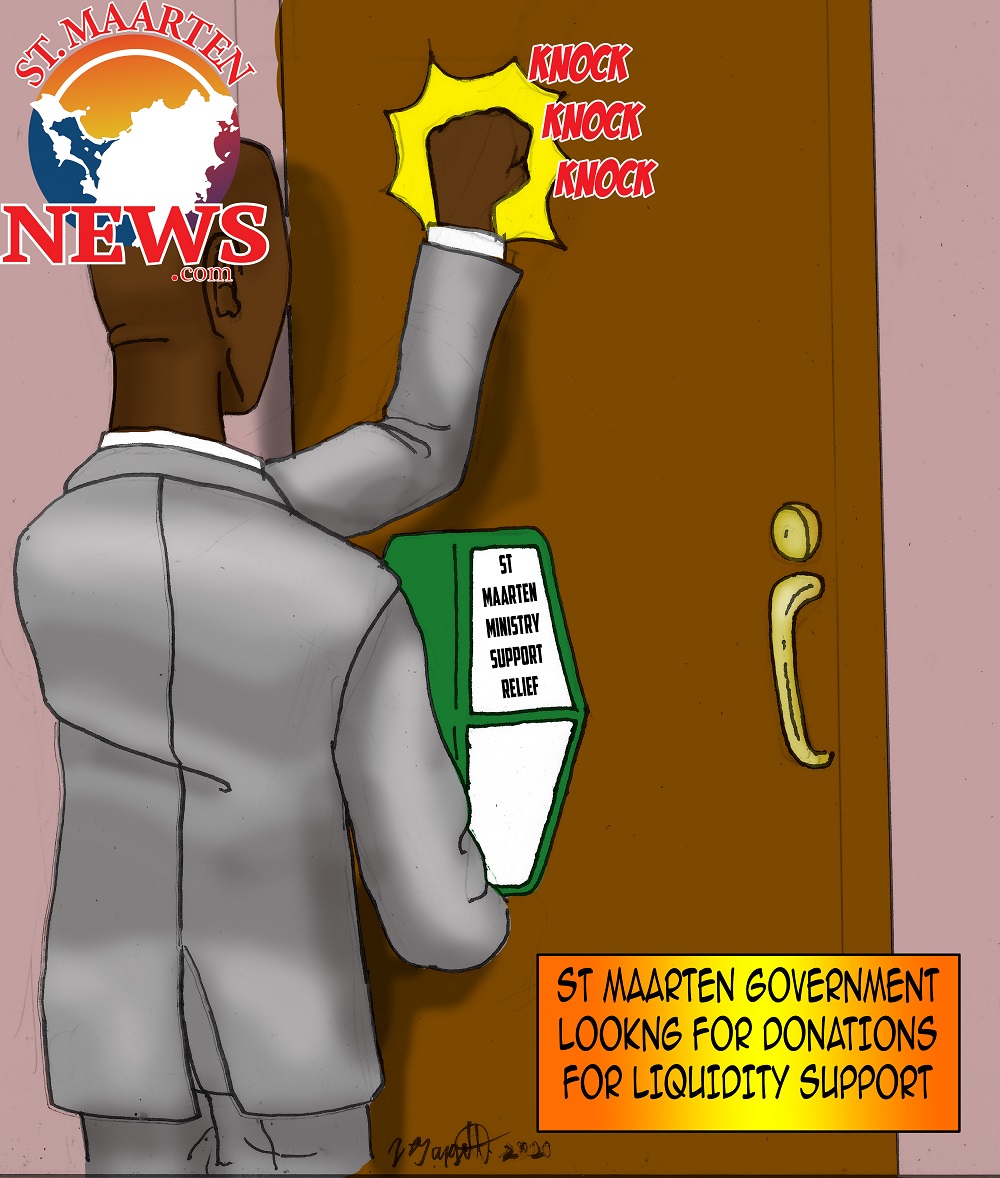Liquidity support still up in the air

PHILIPSBURG – The government is still in a bind about the liquidity support it is expecting from the Netherlands for 2018 and 2019. But so far, St. Maarten has not met the conditions the Kingdom Council of Ministers attached to this financial injection in April 2019.
These conditions still apply: the Kingdom Council of Ministers demands that St. Maarten improves the detention capacity at the Pointe Blanche prison; that it tackles the salaries and fringe benefits of members of parliament; that it allows the National Police to work on the island; and that it reforms the pension system for civil servants. So far, parliamentarians have not taken a decision about lowering their salaries, and increasing the retirement age is another unsolved issue.
St. Maarten desperately needs that liquidity support, as former Minister of Finance Perry Geerlings made clear in a letter dated October 30, 2019, to Raymond Knops, then State Secretary for Kingdom Relations. Geerlings reported financial setbacks caused by, among other things, the hold that was put on loans for liquidity support third quarter 2018 and an already approved loan for capital investments. This, Geerlings wrote, brought important initiatives to a standstill: a project financial management, the prison and the execution of a project co-financed from the tenth European Development Fund.
“Due to the delayed influx of money living up to agreements made about payment arrears come under pressure. Soon regular payments to creditors and personnel will also come under pressure,” Geerlings wrote.
In the last paragraph of this letter, the former minister appeals to Knops for assistance: “To sum it up, the government of Sint Maarten is up to its neck in water and your decisive assistance is crucial to get out of this deadlock.”
A new government led by Silveria Jacobs has taken over and the parliament is dragging its feet taking crucial decisions that could have unlocked the liquidity support a long time ago. There is no decision about lowering salaries and fringe benefits for parliamentarians and there is no decision about pension reform for civil servants either.
Especially that last issue will cause problems for the 2020 budget, because its projected expenditures for personnel costs are based on the assumption that pension reform would have taken effect per January 1, 2020.
As a matter of fact, the pension reform law was supposed to be finalized since 2018 and effectuated by January 2019. The savings for the government coffers brought about by the lowering of the premiums from 25% to 18% were actually reflected in the budget of 2019, however this must be corrected as the law was still not passed and continues to increase the debt in owed by government to the St. Maarten pension fund APS.
The refusal to do something about the bloated salaries of parliamentarians does not sit well with the decision makers in The Hague either. Several MPs have made proposals to lower the payments in the past (like the late Roy Marlin, Tamara Leonard, Leona Romeo-Marlin and more recently Wycliffe Smith), but they all fell on deaf ears with their colleagues.
In February 2019, the members of the Leona Romeo-Marlin cabinet set the right example by giving up 10 percent of their salaries. It still did nothing to inspire parliamentarians to do the same thing.
Wycliffe Smith, as an MP for the St. Maarten Christian Party, proposed in 2019 that parliamentarians give up 15 percent of their salaries, but his motion was never handled. After Smith became a minister his replacement in parliament Claude Peterson gave voluntarily – and in line with his party’s approach – 15 percent of his monthly salary to charity. Afterwards, Peterson signed on to the 10% voluntary reduction of his salary like the ministers did. So did MP Jules James when he came into parliament to replace MP Theo Heyliger.
In the past we have calculated that the cost per inhabitant of a parliamentarian in St. Maarten is 27.15 dollar-cent, while the cost for a parliamentarian in the Netherlands, based on the same equation, is 0.052 dollar-cent. In other words, MPs in St. Maarten are 522 times more expensive to the tax payer than their colleagues in the Netherlands. Closing that gap at least a little bit should not be too painful.
And what if parliamentarians don’t move on the topic of their own income? In that case, the Netherlands will not provide any liquidity support. That in turn will have consequences for the government’s creditors and for its personnel. When there is no more money, nobody is going to get paid and government services (think garbage collection) will come to a complete standstill.



























